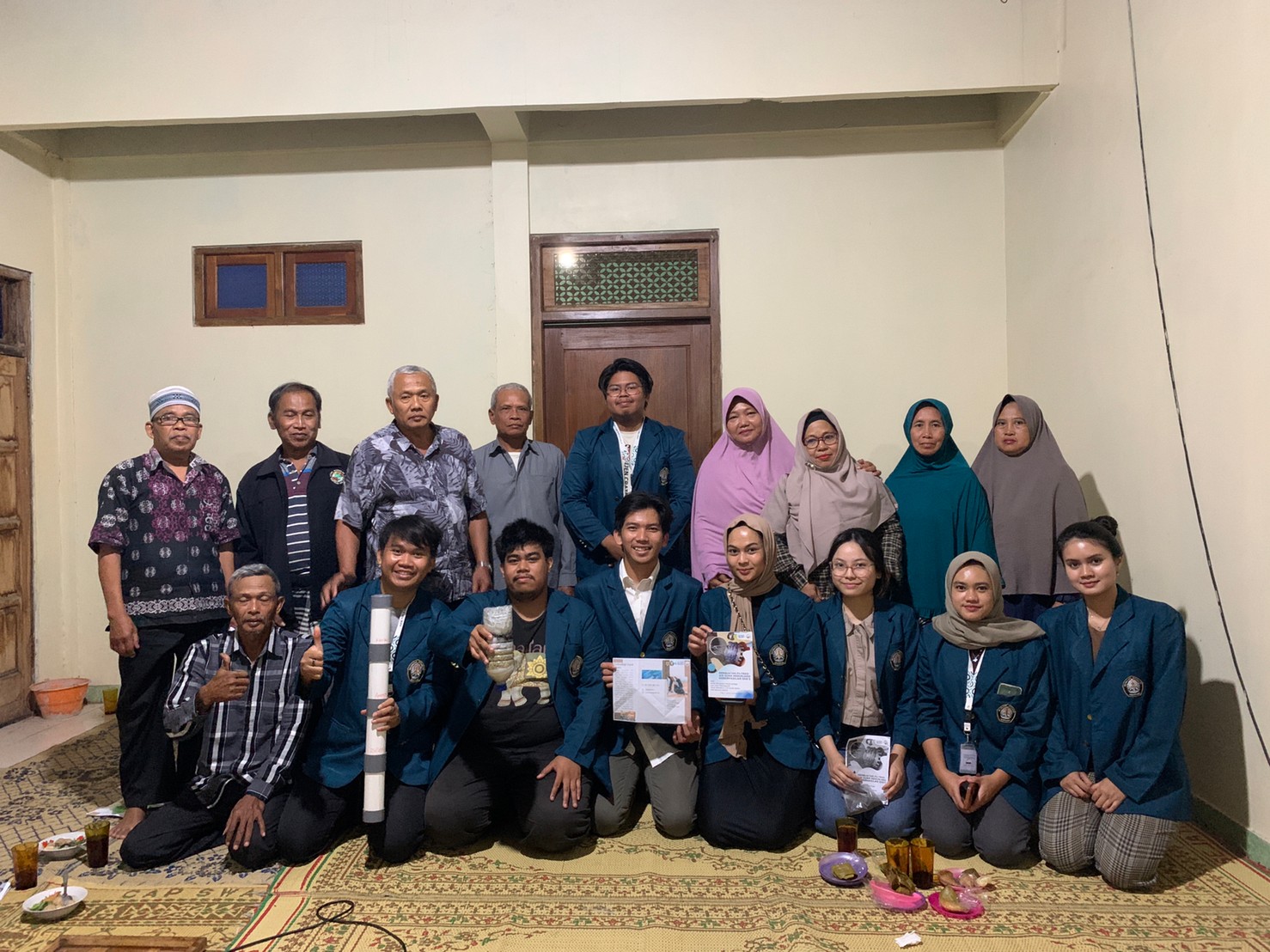Sukoharjo (09/08/2023)- Bulakan Village is located on the banks of the Bengawan Solo River and is administratively included in Sukoharjo District, Sukoharjo Regency, Central Java Province. Many Sukoharjo people utilize the Bengawan Solo River as a source of agricultural irrigation and also water tourism. River water that never recedes despite the dry season has water reserves that can be widely utilized by the community.
This river flow is widely utilized as a source of agricultural irrigation in Bulakan Village, while for household purposes the community uses groundwater wells. Groundwater is any form of rainwater flow that flows below the ground surface as a result of the earth’s gravitational force, geological layering structure, and different soil moisture potentials.
But the groundwater used by the Bulakan community has a slightly yellowish color, a slightly salty taste, and gives off a strong iron smell. These characteristics are certainly not in accordance with the characteristics of good groundwater, where groundwater should be clear and not turbid, colorless, and taste fresh. Good groundwater should have a pH ranging from 6.8 to 7.2. The strong iron odor is due to the iron content exceeding the iron content threshold of 0.3 mg/l.
This unfit groundwater is most likely caused by the intrusion of Bengawan Solo River water. River water intrusion itself is the entry of river water into the pores of soil and or rock that causes groundwater that was originally fresh to turn brackish or salty. The cause of river water intrusion is excessive groundwater pumping from the aquifer.
Seeing the existing problems, Diponegoro University KKN Team II student in 2022/2023, Riski Aprianto, gave an idea in the form of making activated charcoal-based multilevel water filtration from sawdust waste. This sawdust waste is obtained from furniture entrepreneurs in Bulakan Village. This sawdust waste, which is only thrown away and burned, can be utilized as one of the raw materials in water filtration.
Water filtration with wood powder waste activated charcoal has several advantages, namely that it can remove heavy metal particles in water and make the water smell and taste better. This filtration was socialized on 06 August 2023 at the house of Mr. Miyarno, as one of the community leaders in Bulakan Village. This activity was attended by around 50 Bulakan villagers consisting of men, women, and youth organizations.
The tools and materials to make this filtration are easily found in building stores and online stores. The filtration made has three parts containing gravel, activated charcoal, and also zeolite stones. These three materials are arranged in a 2-inch pipe that is limited using wire mesh and a porous filter. The main ingredient, activated charcoal, is made by chemically activating the charcoal from burning wood powder waste. Where, charcoal from sawdust waste is soaked in Sodium Hydroxide (NaOH) with a concentration of 0.5 M for 24 hours. This activation serves to create pores in charcoal so that it can bind heavy metals in water. This filtration is easy to make so that it can be done on a household scale so that it can help overcome the problem of clean water in Bulakan Village.
Mr. Sriyanto, as the mosque caretaker of Bulakan Village, said that the explanation of filtration was very helpful to the community, and that future cooperation was needed so that it could be applied by the Bulakan community. “This filtration is very good and useful for the Bulakan community, because the water quality here is not good. This filtration can also be installed in the Bulakan mosque which has a reservoir with a capacity of 30,000 liters. This innovation can help overcome the problems of 70 households in RT 03 RW 04 if applied”, he said.

Counseling on multilevel water filtration based on wood powder waste activated charcoal is expected to help overcome the problem of clean water supply in Bulakan Village. The utilization of sawdust waste as raw material for making activated charcoal is also expected to reduce environmental problems due to sawdust burning. This multilevel filtration program is expected to be implemented by the Bulakan community so that the need for clean water can be met. (Riski Aprianto)

